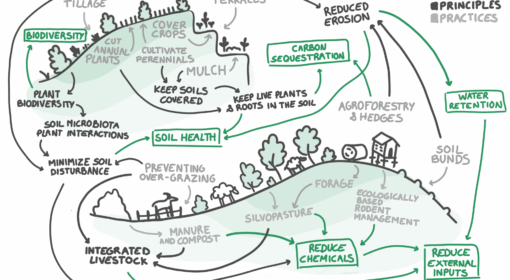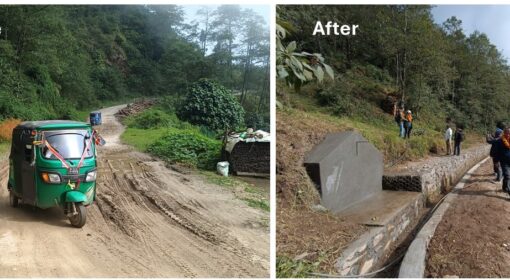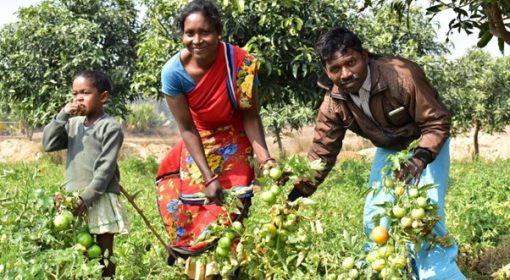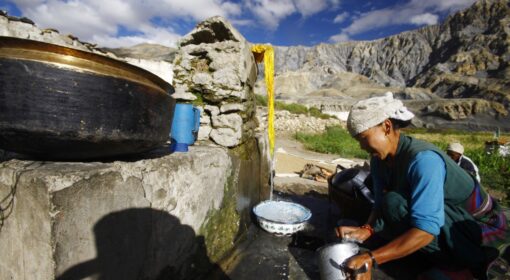This co-authored blog is part of the ongoing partnership between MetaMeta and the Environment and Sustainable Development Unit (ESDU) at the American University of Beirut under the RESOLVE project in Lebanon.
Contributors:
- MetaMeta: Raymond Khoury, Sophie Mansour, Farah Kamaleddine, Zeina Mahmoud, Luwieke Bosma
- ESDU: Sarah El Khechen, Samar Morkos, Mireille Zeineddine
Regenerative Agriculture in Lebanon: A Necessary Response to Crisis
Lebanon’s agricultural sector stands at a critical juncture. Reliance on costly imports, severe economic instability, and minimal institutional support have pushed farming to the brink, with food insecurity soaring to unprecedented levels. Recent analyses classify 29% of Lebanon’s population, 1.59 million people, in Crisis levels of acute food insecurity or worse (IPC, 2024). This is not just a statistic; it is a national emergency. For farmers, this translates into skipped meals, selling livestock to afford inputs, or abandoning fields altogether.
Compounding this crisis, climate change is hitting farmers with devastating force. From unparalleled water scarcity to escalating pest outbreaks, many are struggling to adapt, while others have been forced to abandon their livelihoods altogether. This is exacerbated by a warming rate double the global average and a fragmented institutional response (World Bank, 2024). In this context, regenerative agriculture (RA) – a set of farming practices that restore soil health, enhance biodiversity, and improve water cycles while reducing reliance on chemical inputs – offers more than a sustainable alternative; it presents a toolkit for survival, resilience, and rebuilding.
But is regenerative agriculture a well-understood revolution or just a buzzword? In Lebanon, it is interpreted and practiced in vastly different ways, with no single framework or consensus. This blog, co-authored by the Environmental Sustainability and Development Unit (ESDU) at AUB and MetaMeta, is part of the RESOLVE project’s effort to map this complex landscape: Who are the key actors? What are the real barriers? And, most crucially, how can we move from fragmentation to collective action?
Mapping the Gaps and Opportunities: A Landscape of Contrasts
Our journey through Lebanon’s agricultural ecosystem revealed a story of profound contrasts and deeply rooted challenges. These insights are not based on assumptions but are grounded in extensive fieldwork, including around 300 questionnaires conducted by ESDU with farmers, NGOs, and agricultural cooperatives, as well as 35-40 Key Informant Interviews with a wide spectrum of stakeholders across the agriculture sector.
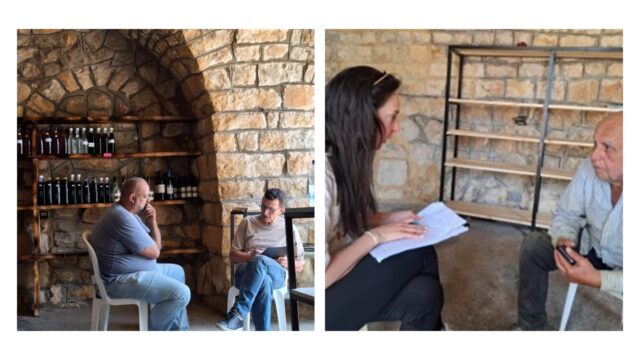
At the farm level, we found two realities: some farmers are “accidentally regenerative”, using traditional techniques like crop rotation or homemade biopesticides without using the RA label, while others are fully committed pioneers who have made the conscious shift. Yet, these pioneers face a harsh economic truth: they often experience lower yields initially, and the market fails to provide a sufficient price premium to cover their costs. They persevere out of deep environmental conviction, but they are left wondering about the long-term feasibility of their choice. Their commitment is both the movement’s greatest asset and its most vulnerable point at the same time.
This individual struggle is mirrored institutionally. For instance, we found dedicated extension officers at the Ministry of Agriculture actively promoting practices such as composting. Yet, their efforts are constrained by limited budgets, insufficient staff, and a policy framework still adapting to the holistic principles of regenerative agriculture (RA). RA, like organic farming and agroecology, shares the overarching goal of building healthier soils, reducing chemical dependency, and ensuring long-term sustainability — even if the systems differ in their economic models or social framing. Within this context, an Organic Production Committee exists at the national level, though it has yet to be fully activated. Such a committee could play a pivotal role in setting standards, facilitating the sourcing and local production of biological inputs, and overseeing their import and regulation. These inputs are a common asset for all sustainable farming approaches, whether RA, organic, or agroecological. By operationalizing the committee, Lebanon could move beyond the current cycle of inaction and take a concrete step toward institutional support for more sustainable agriculture.
Academic institutions are laying the groundwork by integrating RA principles into courses and research, but comprehensive university programs addressing organic farming or the like are still lacking. Research institutes have initiated valuable demo plots and studies, yet scaling these results to widespread farmer adoption remains a major hurdle. As one of these research institutions, ESDU combines academic expertise with strong community networks, ensuring that knowledge translates into practice by connecting farmers, cooperatives, and policymakers to Lebanon’s agroecological transition.
The private sector shows promise, with importers of agricultural inputs (e.g., seeds, fertilizers, pesticides) beginning to align with international sustainability norms and supply certified organic inputs—a critical but still emerging service. Among consultants and practitioners, we found a spectrum of understanding, from deep holistic expertise to a focus on isolated techniques. This has created a chaotic environment where terms like permaculture, agroecology, and agroforestry are often used interchangeably, leaving farmers to piece together a complete system from fragmented advice. As a result, the guidance farmers receive is largely shaped by input suppliers (commonly known as ‘agricultural pharmacies’ in Lebanon), whose objectives are primarily commercial and often misaligned with the long-term needs of farmers.
Underpinning all these challenges is a critical lack of access to certified seeds, affordable quality compost, and other biological inputs. This, combined with the sheer economic pressure on everyone, from farmers to municipalities, creates a system where will and potential are abundant, but the means to connect them are not.
The Way Forward: Building a Connected Ecosystem
The question is no longer what needs to be done, but how we build the connections to make it possible. Our stakeholder interviews from the ministry to the fields revealed a clear blueprint for action:
- Bridge the Data Gap: How can a farmer know what works if there’s no accessible data? Our response is the RESOLVE interactive map that goes beyond a simple directory. Covering the water–energy–food (WEF) nexus and regenerative agriculture, it kicked-off in the Chouf area and aims to expand nationwide. The map fills information gaps by consolidating data on a single platform – capturing areas of concentrated agricultural activity, the types of practices applied, the range of crops cultivated, and the energy and water sources in use. Its layered design gives a clear picture of interlinked resources, helping connect farmers, cooperatives, and policymakers with on-ground practices. More than a directory, it supports outreach, teamwork, and informed decision-making—strengthening Lebanon’s agricultural ecosystem through knowledge sharing and well-connected actors. Importantly, ESDU will continue to maintain and update the platform beyond RESOLVE, ensuring its value endures well beyond the project’s timeline.
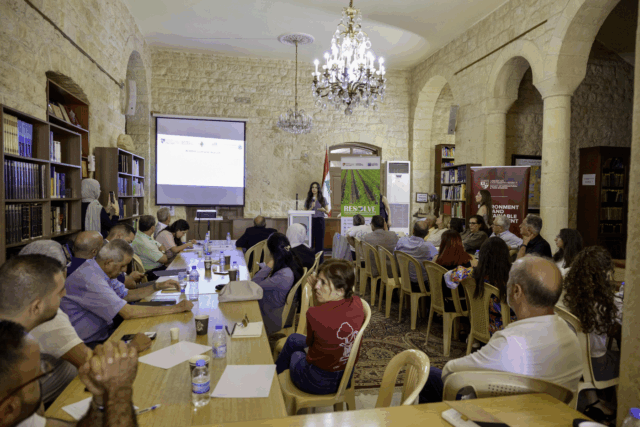
- Activate Formal Coordination: A recurring plea from every sector was for a unified platform. Therefore, a key outcome of RESOLVE will be to catalyze a National Agroecology Working Group, co-chaired by key institutions, with the Ministry of Agriculture in the lead. The ultimate goal of this is giving structure to the collaboration we all seek, and sustaining it over the long term.
- Link Data to Practice: RESOLVE introduces regenerative pilots in wheat and legumes value chains, ensuring that data insights are directly connected to tangible practices on the ground. These pilots not only demonstrate the practical benefits of regenerative agriculture but also serve as living examples where farmers can learn, adapt, and scale new methods.
- Empower Local Governance: Municipalities emerged as unsung heroes with untapped potential. They can be empowered to lead by allocating land for community compost hubs and establishing local seed libraries, acting as vital nodes in a decentralized support network. As part of RESOLVE, and after presenting the map to Chouf municipalities, we are also creating long-term collaborations and agreements with those willing to cooperate, so they remain actively involved and contribute updated data to the interactive map. These agreements build trust and ensure sustainability beyond project funding.
- Build Trust and Value: The rational call for government-accredited organic certification is essential to build consumer trust and ensure farmers receive a fair price that values their commitment and risk. Such certification should extend beyond the final product to also cover the inputs, ensuring integrity across the entire production process. This is a pivotal moment for Lebanon’s agriculture, as the Ministry of Agriculture is drafting a new 10-year National Agriculture Strategy. It is also an opportunity for all of us, actors, to push for the necessary reforms and embed strategic measures that can shape the sector’s future.
Conclusion: An Invitation to Collaborate
The path forward is clear. It is not about a single project or a silver bullet. It is about building a shared, resilient ecosystem. RESOLVE is our contribution, a starting point of validated data, proven practices, and, most crucially, a connected community of practice.
The map is being drawn. The working group is being convened. The evidence is being gathered.
Now, we invite you to join us, Whether you are a farmer, a policymaker, a business owner, or a citizen-consumer, your role is critical. Together, we can transform the buzzword of ‘regenerative agriculture’ into the bedrock of Lebanon’s food security and environmental sustainability.
Let’s move from fragmentation to a shared future.
For more information on RESOLVE, you can reach out to:
GOPA MetaMeta: Project Manager, Farah Kamaleddine, Email: farah.kamaleddine@gopa.eu
ESDU: Project Coordinator,s Sarah Khechen, Email: sge17@mail.aub.edu and Samar Morkos, Email: sm259@aub.edu.lb
[References:]
- Sher, A., Li, H., ullah, A. et al. Importance of regenerative agriculture: climate, soil health, biodiversity and its socioecological impact. Discov Sustain 5, 462 (2024).
- IPC (2024). IPC Acute Food Insecurity Analysis, Lebanon.
- World Bank (2024). Drought and Agriculture in Lebanon: Causes, Consequences, and Risk Management.
